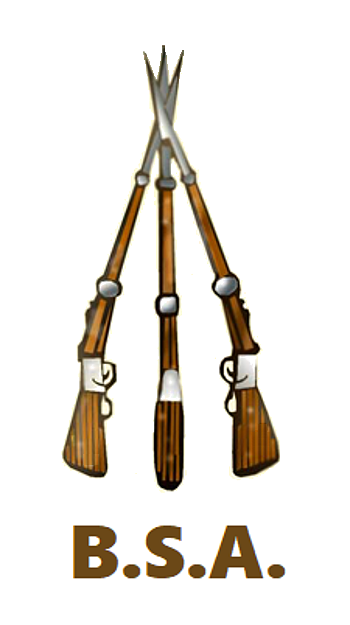Birmingham Bicycle Company
 |
|
| Listed company | |
| Fate | Acquired 1973 by Manganese Bronze Holdings |
| Founded | Gun Quarter, Birmingham, England, 1861 |
| Headquarters | Birmingham, UK |
|
Key people
|
|
| Products |
|
| Subsidiaries |
|
|
Footnotes / references |
|
| Industry | Motorcycle |
|---|---|
| Fate | effectively bankrupt |
| Successor | Norton-Villiers-Triumph |
| Founded | 1919 |
| Defunct | 1972 |
| Parent | BSA |
The Birmingham Small Arms Company Limited (BSA) was a major British industrial combine, a group of businesses manufacturing military and sporting firearms; bicycles; motorcycles; cars; buses and bodies; steel; iron castings; hand, power, and machine tools; coal cleaning and handling plants; sintered metals; and hard chrome process.
At its peak, BSA (who also owned Triumph) was the largest motorcycle producer in the world. In the late 1950s and early 1960s poor management and failure to develop new products in the motorcycle division led to a dramatic decline of sales to its major USA market. The management had failed to appreciate the importance of the resurgent Japanese motorcycle industry, leading to problems for the entire BSA group.
A government-organised rescue operation in 1973 led to the takeover of remaining operations by what is now Manganese Bronze Holdings, then owners of Norton-Villiers, and over the following decade further closures and dispersals. The original company, The Birmingham Small Arms Company Limited, remains a subsidiary of Manganese Bronze but its name was changed in 1987.
Manganese Bronze continues to operate former BSA subsidiary Carbodies, now known as The London Taxi Company, previously LTI Limited, manufacturers of London taxicabs and formerly the largest wholly British-owned car manufacturer. (Manganese Bronze is now owned by the Chinese company Geely).
BSA began in June 1861 in the Gun Quarter, Birmingham, England, founded specifically to manufacture guns by machinery. It was formed by a group of fourteen gunsmith members of the Birmingham Small Arms Trade Association. The market had moved against British gunsmiths following the outbreak of the Crimean War in 1854 because the Board of Ordnance's Royal Small Arms Factory at Enfield had introduced machinery made in the USA and Enfield's greatly increased output had been achieved with reduced reliance on skilled craftsmen. The War Office provided this new grouping of gunsmiths free access to technical drawings and their facilities at their Enfield factory.
...
Wikipedia
